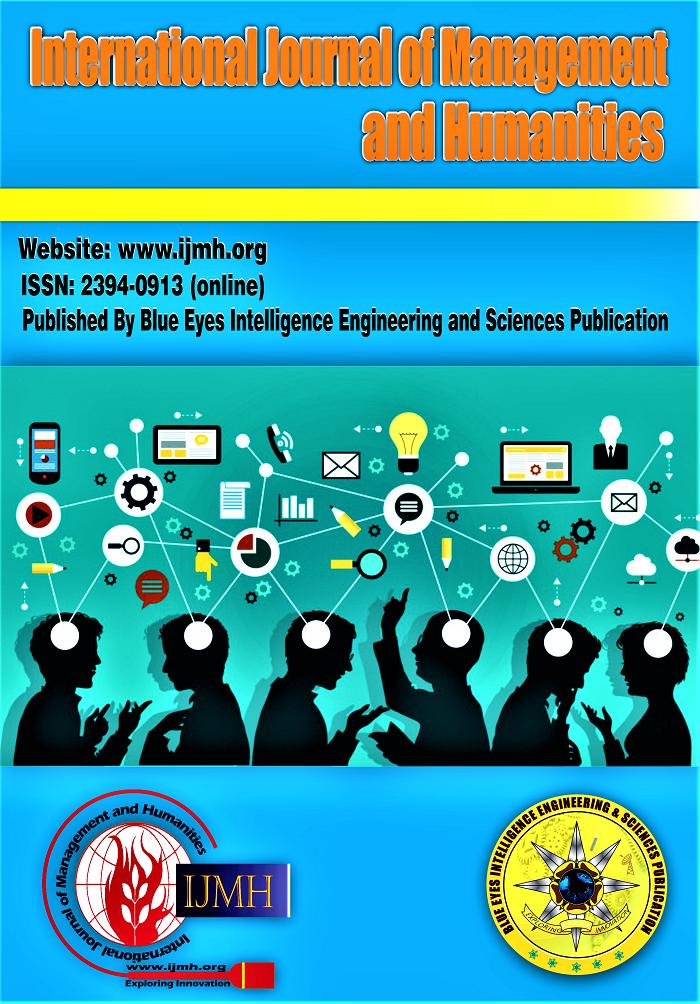Participation of Students in Academic Activities: Essential in Achievement of Educational Goals
Main Article Content
Abstract
In educational institutions of all levels, the educators need to encourage the participation of students in academic activities. The participation of students is on an individual basis or in groups of two or more. These are related to academic subjects and lesson plans. Hence, in order to enhance the participation of students in these activities, they need to acquire an efficient understanding of different types of academic subjects and lesson plans. In addition, they are required to hone their confidence levels. Furthermore, they are required to be well-informed in terms of different types of educational goals. Hence, the possession of appropriate information will be facilitating in doing well in one’s tasks and activities and generating desired outcomes. The educators need to ensure that all types of academic activities are favourable to the students and to overall system of education. The educators put in their best efforts in making all types of academic activities pleasurable. Furthermore, these need to be enjoyed by the students. In some cases, the educators obtain ideas and suggestions from students, but in most cases, they use their own discretion. Therefore, it is well-understood, participation of students in academic activities is essential in achievement of educational goals. The main concepts that are taken into account in this research paper are, understanding the meaning and significance of academic activities, advantages of encouraging academic activities and measures to be implemented in leading to up-gradation of academic activities.
Downloads
Article Details
Section
How to Cite
References
Chapter-10. (n.d.). Science and Technology. Retrieved June 24, 2024 from http://planningcommission.gov.in/plans/planrel/fiveyr/10th/volume2/v2_ch10_1.pdf
Crespo, R.M., Najjar, J., Derntl, M., Leony, D., Neumann, S., Oberhuemer, P., Totschnig, M., Simon, B., Gutierrez, I. & Delgado, K.C. (2010). Aligning Assessment with Learning Outcomes in Outcome-based Education. Retrieved June 24, 2024 from http://dbis.rwth-aachen.de/~derntl/papers/preprints/educon2010-icoper-preprint.pdf https://doi.org/10.1109/EDUCON.2010.5492385
Enrolment in Childcare and Pre-school. (2016). Retrieved June 24, 2024 from https://www.oecd.org/els/soc/PF3_2_Enrolment_childcare_preschool.pdf
Ference, P.R., & Vockell, E.L. (1994). Adult Learning Characteristics and Effective Software Instruction. Educational Technology, 34(6), 25-31. Retrieved June 24, 2024 from https://www.uio.no/studier/emner/matnat/ifi/INF3280/v12/undervisningsmateriale/FerenceVockell1994AdultLearningSoftware.pdf
Grissmer, D.W. (2001). Strategies for Improving Student Achievement. Indiana Family Impact Seminars. Retrieved June 24, 2024 from https://www.purdue.edu/hhs/hdfs/fii/wp content/uploads/2015/07/s_infis03c04.pdf
Rajak, A., Shrivastava, A. K., & Shrivastava, D. P. (2019). Course Outcome Attainments in OBE for Weak Students. In International Journal of Innovative Technology and Exploring Engineering (Vol. 8, Issue 11, pp. 506–509). https://doi.org/10.35940/ijitee.k1421.0981119
Thomas, Dr. B. (2019). A Novel Fuzzy Based Assessment Method for Learning Outcomes. In International Journal of Recent Technology and Engineering (IJRTE) (Vol. 8, Issue 4, pp. 1665–1669). https://doi.org/10.35940/ijrte.c5298.118419
R, P. V., & J, R. M. (2019). Effectiveness of Curriculum Design in the Context of Outcome Based Education (OBE). In International Journal of Engineering and Advanced Technology (Vol. 8, Issue 6, pp. 648–651). https://doi.org/10.35940/ijeat.8090.088619
Singh, R. K. (2022). Role of Vocational Education and Skill Training to Stimulate Human Development. In Indian Journal of Social Science and Literature (Vol. 2, Issue 1, pp. 31–36). https://doi.org/10.54105/ijssl.a1030.092122





